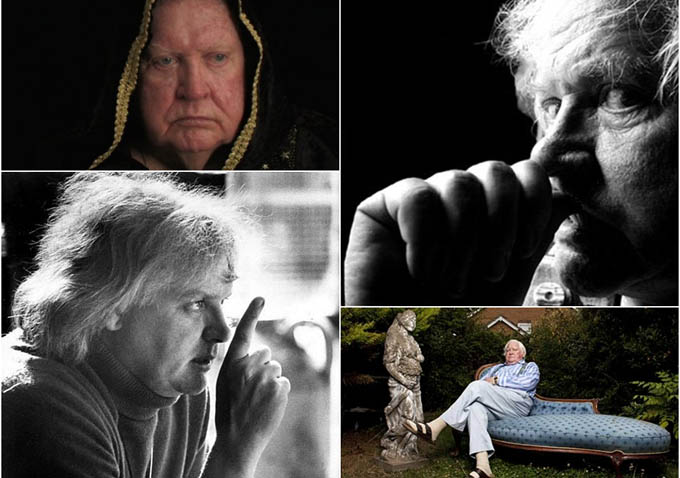 Sad news to start off the post-Thanksgiving week, with reports emerging this morning that Ken Russell, the Oscar-nominated director of "Women In Love," "Tommy," and "Altered States," among many others, and one of the true mavericks of British cinema, has passed at the age of 84. Russell was known for his big, bold, brash, and freqently controversial pictures, including a number of classics of horror cinema, and while the last few decades saw him fall out of favor, he remained a totally unique filmmaker.
Sad news to start off the post-Thanksgiving week, with reports emerging this morning that Ken Russell, the Oscar-nominated director of "Women In Love," "Tommy," and "Altered States," among many others, and one of the true mavericks of British cinema, has passed at the age of 84. Russell was known for his big, bold, brash, and freqently controversial pictures, including a number of classics of horror cinema, and while the last few decades saw him fall out of favor, he remained a totally unique filmmaker.
Born in Southampton, England, in 1927, Russell started off as a photographer, before going on to make arts documentaries, frequently focusing on composers (which would remain an interest of his throughout his career) for the BBC. Against common practice at the time, they frequently included dramatic reconstructions, with "Song of Summer" about the composer Frederick Delius, which Russell considered his best film, and "Dance of the Seven Veils," which was banned by the estate of Richard Strauss after Russell portrayed the composer as a Nazi, among the most memorable.
Still, his work proved influential (Stanley Kubrick was an avowed fan), and it soon got him attention from the big screen, with Russell making his feature debut in 1963 with "French Dressing," a loose remake of Roger Vadim's "And God Created Woman," followed in 1967 with underrated "Ipcress File" threequel "Billion Dollar Brain," with Michael Caine. Two years later came the D.H. Lawrence adaptation "Women in Love," which was a much greater success. The film was nominated for four Oscars (including a win for actress Glenda Jackson, and a nod for Russell as Best Director), and was something of a watershed in cinematic nudity, thanks to the wrestling scene between Alan Bates and Oliver Reed.
After the poorly-received "The Music Lovers," starring a miscast Richard Chamberlain as Tchaikovsky, Russell reteamed with Reed for "The Devils," arguably his most complete crystallisation of his regular themes of sexuality and religion. The horror film was heavily cut and criticised on release (Russell once heroically smacked film critic and self-appointed moral voice Alexander Walker with a rolled up newspaper on live television), and has still never been seen in the U.S. in uncut form, but it's reputation has been restored over the years.
The rest of the 1970s brought mixed result: two musicals, "The Boy Friend" and The Who's classic rock opera "Tommy" (the latter a box office smash) and four artistic biopics, "Savage Messiah," "Mahler," "Valentino" and "Lisztomania," the last being a borderline-insane piece of pop art genius, and the only one of the four that really bears watching. The 1980s saw him make his first real foray into Hollywood with Paddy Chayefsky's script for "Altered States," but while the film was his best received to date, his on-set behavior saw the door close as soon as it was opened, particularly after the follow-up "Crimes of Passion," and Russell returned to the UK, where he made a pair of horror flicks, the rather good "Gothic" in 1986, and the less good "Lair of the White Worm" in 1988.
The following year brough things full-circle, returning to D.H. Lawrence with "The Rainbow," which saw Russell calm things down a little, and pick up some strong reviews. (He'd also go on to direct a TV version of "Lady Chatterley's Lover" in 1993, with Joely Richardson and Sean Bean). For the most part, however, by the 1990s, his facility for controversy had eclipsed his filmmaking skills in the public eye, and the last couple of decades mostly involved experimental erotica with tiny production values, his last feature being 2002's near-unwatchable "The Fall of the Louse of Usher."
Still, he remained a provocative and fascinating character (including a brief stint on "Celebrity Big Brother" in the UK in 2007), and has a fine and influential body of work to survive him. He'll be sorely, sorely missed. [The Guardian]

